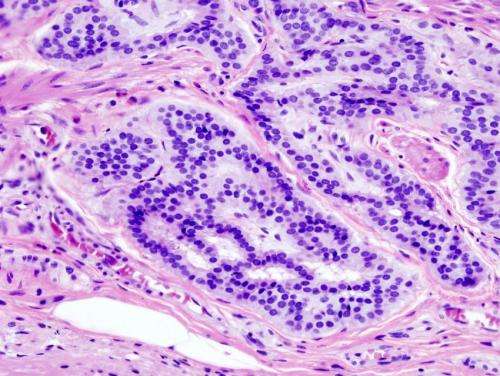Scientists discover gene that blocks spread of colon cancer

Researchers from RCSI (Royal College of Surgeons in Ireland) and the University of Nice, France, have discovered the function of a gene called KCNQ1 that is directly related to the survival of colon cancer patients. The gene produces pore-forming proteins in cell membranes, known as ion channels. The finding is an important breakthrough towards the development of more effective therapies for colon cancer and new diagnostics that will provide a more accurate prognosis for colon cancer patients. The research is published this week in the prestigious journal Proceedings of the National Academy of Sciences (PNAS).
This is the first study of its kind to work out the molecular mechanisms of how the KCNQ1 ion channel gene suppresses the growth and spread of colon cancer tumours.
Worldwide, there are 774,000 deaths from colorectal cancer each year and it is the third leading cause of death from cancer globally. In Ireland, almost 2,500 Irish people are diagnosed with bowel cancer annually and it is the second most common cause of cancer death.
The research team, led by Professor Brian Harvey, Department of Molecular Medicine, RCSI, have identified the molecular mechanisms by which the KCNQ1 gene suppresses the growth and spread of colon cancer cells. The KCNQ1 gene works by producing an ion channel protein which traps a tumour promoting protein called beta-catenin in the cell membranes before it can enter the nucleus of the cell causing more cancer cells to grow.
The study looked at the relationship between the expression of the KCNQ1 gene and patient survival from more than 300 colon cancer patients. Patients who had high expression of the KCNQ1 gene were found to have a longer survival and less chance of relapse.
Commenting on the significance of the discovery Professor Harvey said: "This study has demonstrated the ability of an ion channel gene to block the growth of colon cancer cells. This is an exciting discovery as it opens up the possibility of a new kind of therapy that will target the KCNQ1 gene with drugs and also as a biomarker to improve diagnostics of colon cancer onset and development in patients. This information will help clinicians to identify the most effective treatment for the individual patient."
"In the future, when we understand more about the KCNQ1 gene through further research, it will open up the possibility of developing new drug treatments that will be able harness the suppressive properties of the gene to target the colon specifically, without exposing other tissues in the body to unnecessary chemotherapy. The development of more targeted treatments for colon cancer is vital to improve the prognosis and quality of life for colon cancer patients."
More information: Raphael Rapetti-Mauss et al. Bidirectional KCNQ1:β-catenin interaction drives colorectal cancer cell differentiation, Proceedings of the National Academy of Sciences (2017). DOI: 10.1073/pnas.1702913114

















